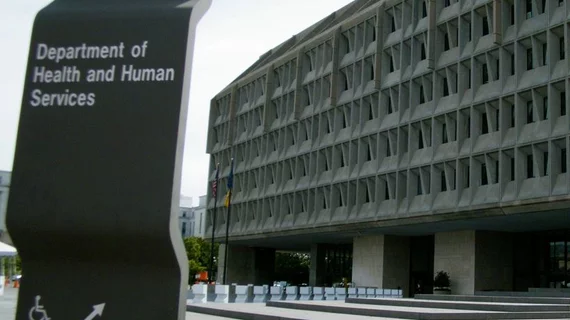HHS picks new CIO
HHS has named a new chief information officer, Jose Arrieta. The position had been open for about nine months.
Arrieta had been acting as the agency’s associate deputy assistant secretary for acquisition since January 2018. The news was first reported by FCW after the announcement was made at the AFFIRM Leadership Awards event on May 23.
Prior to working at HHS, Arrieta was an adjunct professor at the Johns Hopkins University Carey Business School, according to his LinkedIn profile. His expertise lies in blockchain, and he previously won a 2019 Federal 100 Award for bringing the first blockchain-powered procurement solution to the government, according to FCW.
Blockchain, which is an electronic distributed ledger, in particular has many potential applications in healthcare, from changing patient health records and improving clinical trials to tracking and verifying specialty drugs. By 2020, 20% of healthcare organizations are expected to use blockchain for operations management and patient identity.
In his new role at HHS, Arrieta will likely help the agency continue to develop innovative new solutions for the American healthcare system.
While HHS has been without a permanent CIO for the last nine months, Ed Simcox, HHS chief technology officer, had been filling in as interim CIO after Beth Killoran departed the role in August 2018.

